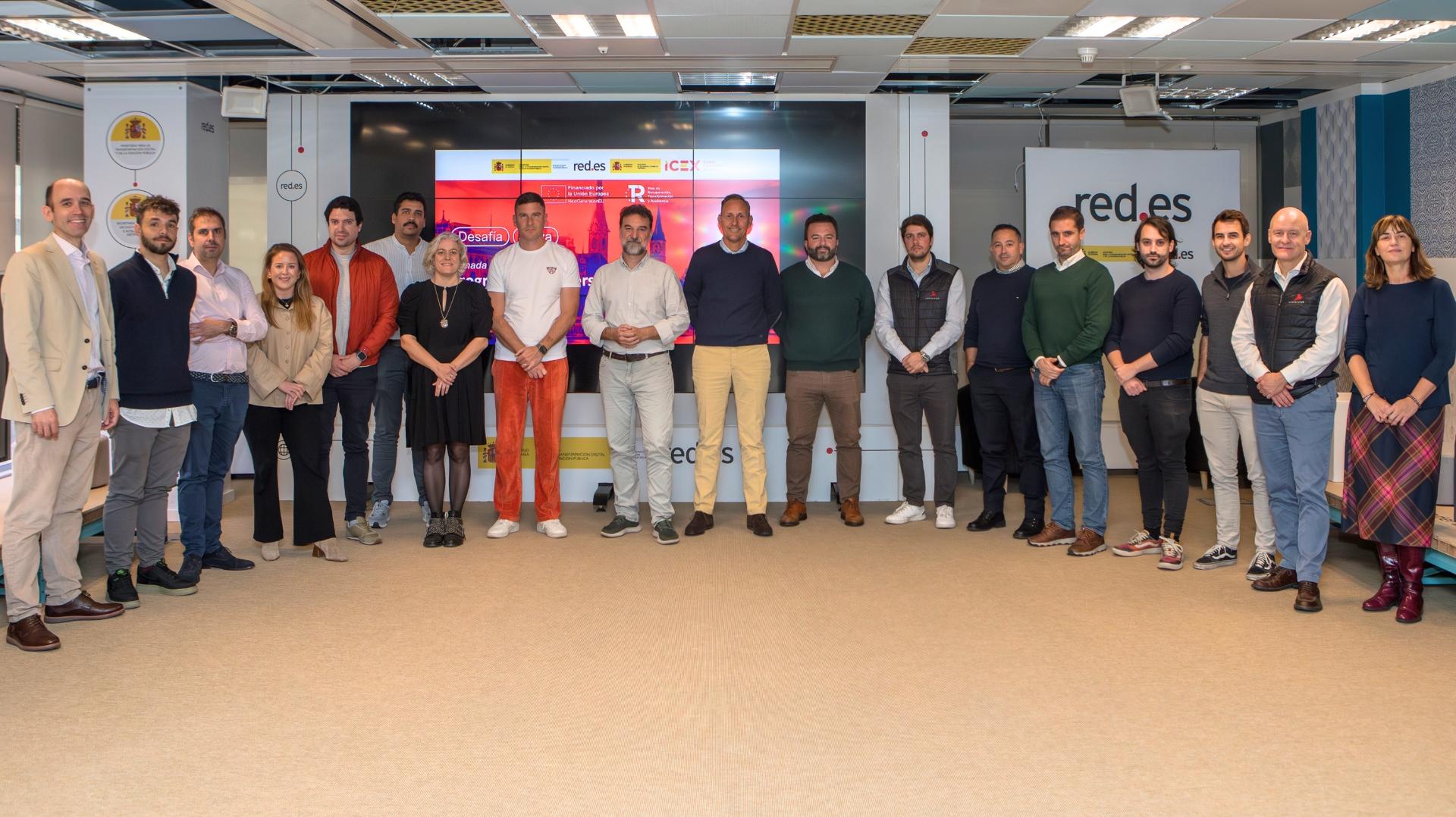Meet María José Pedragosa, Co-Founder of Revivack. The sustainability-focused startup enables producers to meet EU circularity regulations by automating product take-back, recovery, and traceability through reverse logistics and blockchain technology. In May, María and the other nine Desafía Team members will participate in a two-week immersive business program across Zurich, Lausanne, and Bern to establish sustainable growth pathways in Switzerland's innovative ecosystem.
 Although María José Pedragosa holds a degree in Biology, she founded and led her advertising agency for 12 years, gaining extensive experience in communication and team management. After selling the agency, she launched Canalcomunica, the first educational platform aimed at fostering critical thinking in children. In 2006, she joined the NGO Acciónatura as Marketing and Fundraising Director, where she championed biodiversity conservation by leading projects such as the reintroduction of brown bears in the Pyrenees and coral reef restoration in Garraf. She also co-directed the Cero CO2 project and served on the Ocean 2012 coalition. Transitioning into the circular economy, she co-founded two ventures: POPSICASE (phone cases made from fishing nets) and Revivack—a platform that facilitates the return of unused items to brands, enhancing reverse traceability. Her career blends entrepreneurship, environmental advocacy, and innovation in sustainable industries.
Although María José Pedragosa holds a degree in Biology, she founded and led her advertising agency for 12 years, gaining extensive experience in communication and team management. After selling the agency, she launched Canalcomunica, the first educational platform aimed at fostering critical thinking in children. In 2006, she joined the NGO Acciónatura as Marketing and Fundraising Director, where she championed biodiversity conservation by leading projects such as the reintroduction of brown bears in the Pyrenees and coral reef restoration in Garraf. She also co-directed the Cero CO2 project and served on the Ocean 2012 coalition. Transitioning into the circular economy, she co-founded two ventures: POPSICASE (phone cases made from fishing nets) and Revivack—a platform that facilitates the return of unused items to brands, enhancing reverse traceability. Her career blends entrepreneurship, environmental advocacy, and innovation in sustainable industries.Can you tell us who your product or solution helps, and how?
Revivack is an innovative platform that enables producers to circularize their products in compliance with EU regulations. By integrating reverse logistics automation and blockchain technology (ZKPs), we simplify the process of planning, recovering, and tracking unwanted items, while providing measurable benefits.
What market are you addressing, and what is the potential of your startup in that market?
Revivack serves manufacturers and retailers (B2B & B2C) subject to EU Extended Producer Responsibility laws, as well as waste recovery companies that require activity tracking and certificates of origin. Our ideal customers are businesses seeking to enhance their reputation, boost sales, ensure compliance, avoid greenwashing, and focus on eco-design. The Total Addressable Market (TAM) spans all industries that generate recoverable waste, with an initial focus on textiles, electronics, accessories, marine plastic, and events—representing a multi-billion-euro opportunity in the circular economy.
What are your team’s key achievements to date?
Our partnership with the UPC Telematics Engineering Department (Information Security Group, Dr. José Luís Muñoz) helped us secure the NEOTEC Woman grants and develop a platform that has already attracted 10 companies, facilitated the return of 170 items, and tracked 2,000 kg of waste avoided. We’ve also won a project with MOEVE Corporation for the traceability of used oil for biofuel production and were awarded the Last Mile Grant to make events in Spain more circular.
What do you expect from Desafía, and how will it help you achieve your vision?
We anticipate valuable consultancy and the right tools to address this market. We are also looking to connect with Swiss brand producers, high-tech recovery companies, public and private institutions focused on the circular economy, and the investment community.
Why does Switzerland represent a great opportunity for you?
Switzerland is a key market for the circular economy, with a strong tradition in sustainability, recycling, and resource management. However, challenges such as the country's high dependence on exporting recyclable waste and the need for innovative reuse models create opportunities for Revivack. Switzerland is also home to the World Economic Forum, an organization that promotes the circular economy globally, encouraging collaboration among governments, businesses, and civil society while advancing policies to reduce waste and optimize resource usage worldwide.









